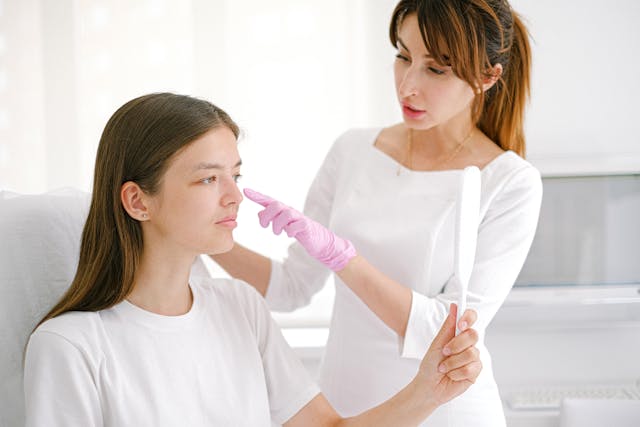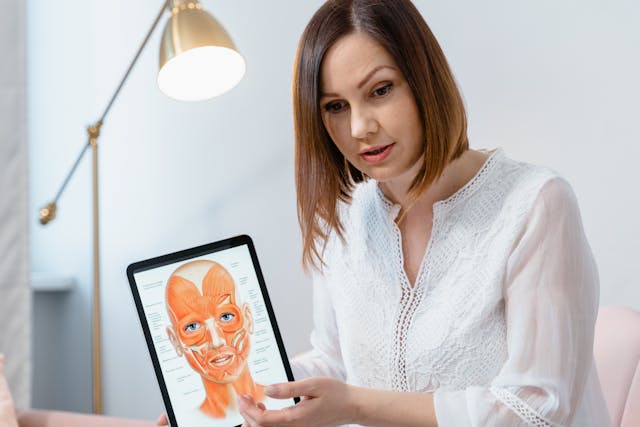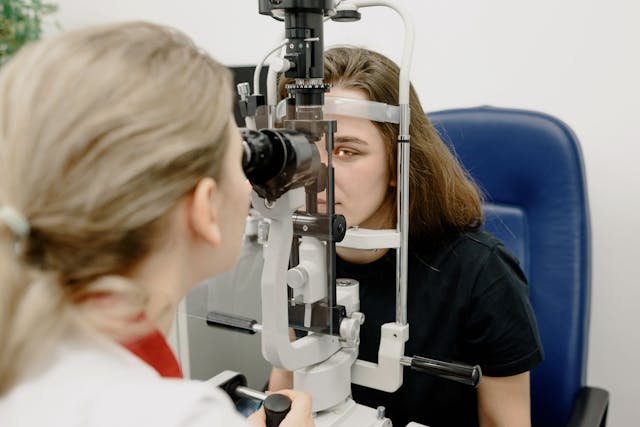Introduction
Educating patients is not simply about transferring information—it’s about empowering individuals to understand their conditions, make informed choices, adhere to treatments, and take active roles in managing their health. Effective patient education improves clinical outcomes, reduces hospital readmissions, enhances patient satisfaction, and promotes health equity. Yet, teaching patients in ways that truly engage and motivate them requires specialized skills and strategies. That’s why Applied Patient Education Techniques is essential for today’s healthcare providers.
This course equips clinicians, nurses, allied health professionals, and educators with practical, evidence-based techniques for designing and delivering patient education that leads to meaningful understanding and behavioral change. Participants will explore adult learning principles, health literacy, communication strategies, cultural competence, and motivational interviewing—all within the context of real-world healthcare settings.
Because in healthcare, teaching is healing—and education is empowerment.

Who’s This Course For
This course is designed for healthcare professionals and educators who are responsible for providing education to patients, families, or caregivers across diverse care settings.
This course is ideal for:
- Nurses and nurse practitioners
- Physicians and physician assistants
- Clinical educators and patient navigators
- Physical, occupational, and speech therapists
- Pharmacists and pharmacy technicians
- Dietitians and nutritionists
- Public health practitioners
- Community health workers and case managers
Whether you are teaching a patient how to manage diabetes, explaining a complex medication regimen, or preparing a caregiver for at-home wound care, Applied Patient Education Techniques provides the tools to do it effectively.
Latest Trends in Applied Patient Education Techniques
Patient education is evolving rapidly to reflect new insights into how people learn, how health behaviors change, and how diverse populations engage with information. Key trends shaping Applied Patient Education Techniques include:
Emphasis on Health Literacy and Plain Language
Healthcare providers are adopting communication strategies that account for varying levels of health literacy, using simple, clear, and actionable language.
Use of Teach-Back and Interactive Methods
Passive instruction is being replaced by interactive teaching, including techniques like the “teach-back” method to confirm patient understanding.
Integration of Digital Tools and Multimedia
Apps, video tutorials, patient portals, and other technologies are enhancing engagement and accessibility in patient education.
Personalized and Culturally Responsive Education
Effective education strategies are tailored to individual needs, values, cultural backgrounds, and preferred learning styles.
Behavior Change Models in Patient Teaching
Patient education increasingly incorporates motivational interviewing, stages of change (transtheoretical model), and self-efficacy building to support sustainable behavior change.
Focus on Patient Activation and Shared Decision-Making
Teaching patients goes beyond informing them—it prepares them to ask questions, express preferences, and collaborate actively in their care.
Learning Objectives and Outcome for the Course Sponsor
Applied Patient Education Techniques strengthens healthcare organizations’ capacity to engage patients, support health literacy, and improve clinical outcomes through strategic, patient-centered teaching practices.
Key Learning Objectives
- Understand the Principles of Adult Learning (Andragogy) in Healthcare
- Recognize how adults learn differently from children
- Apply learning theories such as experiential learning and self-directed learning in patient education
- Assess Patient Readiness, Health Literacy, and Learning Needs
- Use structured tools and observation to assess literacy, language proficiency, cognitive status, and motivation
- Identify barriers to understanding and participation
- Design Effective, Patient-Centered Educational Materials and Sessions
- Develop clear objectives, concise messages, and culturally relevant content
- Select appropriate formats (verbal, written, visual, digital) based on patient needs
- Apply Communication Strategies that Promote Understanding
- Use plain language, visual aids, and “teach-back” techniques
- Adjust tone, pace, and complexity based on patient cues and feedback
- Incorporate Behavior Change Theories into Patient Education
- Use motivational interviewing to enhance patient engagement and commitment
- Apply stages of change models to tailor educational interventions
- Use Technology and Multimedia Tools Responsibly and Effectively
- Integrate digital health tools, online resources, and mobile apps into patient education plans
- Ensure accessibility and digital health literacy
- Promote Cultural Competence and Inclusivity in Patient Teaching
- Respect cultural beliefs, health practices, language preferences, and learning styles
- Adapt materials and approaches to diverse patient populations
- Evaluate the Effectiveness of Patient Education
- Use feedback mechanisms, outcome measures, and follow-up strategies to assess learning and reinforce key messages
You may also be interested in other courses in the Health and Healthcare Management
Organizational Outcomes
- Improved Patient Understanding and Health Outcomes
Patients are more knowledgeable, confident, and engaged in their health management. - Reduced Readmissions and Healthcare Costs
Effective education minimizes preventable complications and unnecessary hospital returns. - Enhanced Patient Satisfaction and Trust
Patients feel respected, heard, and supported through meaningful educational interactions. - Stronger Staff Confidence and Efficiency
Healthcare providers deliver education consistently, clearly, and efficiently across care teams. - Increased Compliance with Accreditation and Quality Standards
Patient education practices align with regulatory expectations (e.g., Joint Commission, CMS).

Course Methodology
This course is highly practical and skills-based, emphasizing applied learning through role-play, case studies, practice labs, and peer feedback.

Core training components include:
Adult Learning and Health Literacy Workshops
- Explore adult learning theories and apply them to real patient education scenarios
- Practice assessing literacy levels and adapting communication styles
Communication Skills and Teach-Back Technique Labs
- Role-play patient teaching sessions using plain language and interactive techniques
- Practice “teach-back” and “chunk-and-check” methods to confirm understanding
Patient-Centered Material Design Exercises
- Develop or critique sample educational materials (brochures, videos, instructions)
- Apply readability and cultural relevance checklists
Behavior Change and Motivational Interviewing Sessions
- Practice motivational interviewing techniques with simulated patients
- Map educational interventions to stages of behavior change
Cultural Competence and Inclusive Education Strategies
- Analyze case studies involving diverse patient populations
- Practice adapting education plans to cultural needs
Technology Integration and Digital Literacy Exploration
- Evaluate health apps, portals, and online resources for quality and accessibility
- Design blended (in-person + digital) education approaches
Capstone Patient Education Project
- Teams design a comprehensive patient education intervention (e.g., for chronic disease self-management, medication adherence, post-surgical care)
- Present educational objectives, materials, delivery plan, and evaluation strategy
Participants receive a digital toolkit including:
- Health literacy assessment tools (e.g., REALM, Newest Vital Sign)
- Teach-back communication checklists
- Educational material development templates
- Behavior change and motivational interviewing scripts
- Patient education evaluation forms
This course is offered as a 3–5 day in-person intensive or as an online modular program, ideal for hospitals, clinics, community health centers, and public health agencies.
Why It Matters in Today’s World
Information alone does not change health outcomes—understanding, engagement, and empowerment do. In a world of medical complexity, diverse patient populations, and health misinformation, the ability to teach patients effectively is a cornerstone of quality healthcare.
Applied Patient Education Techniques ensures healthcare providers do more than inform—they inspire action, promote autonomy, and transform care experiences.
This course prepares you to teach not just with your knowledge—but with purpose, empathy, and skill.









